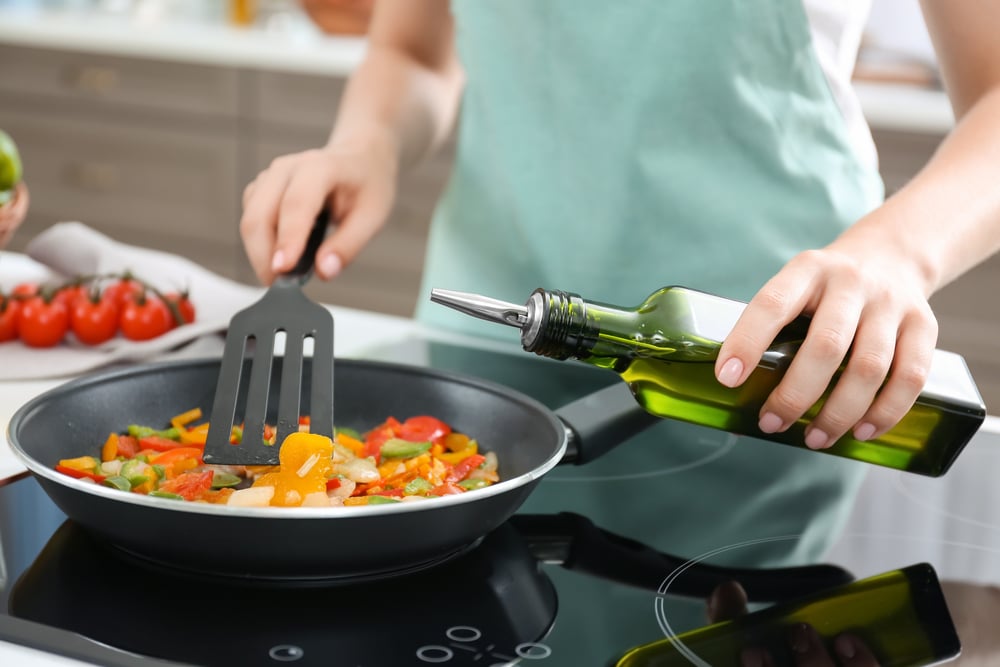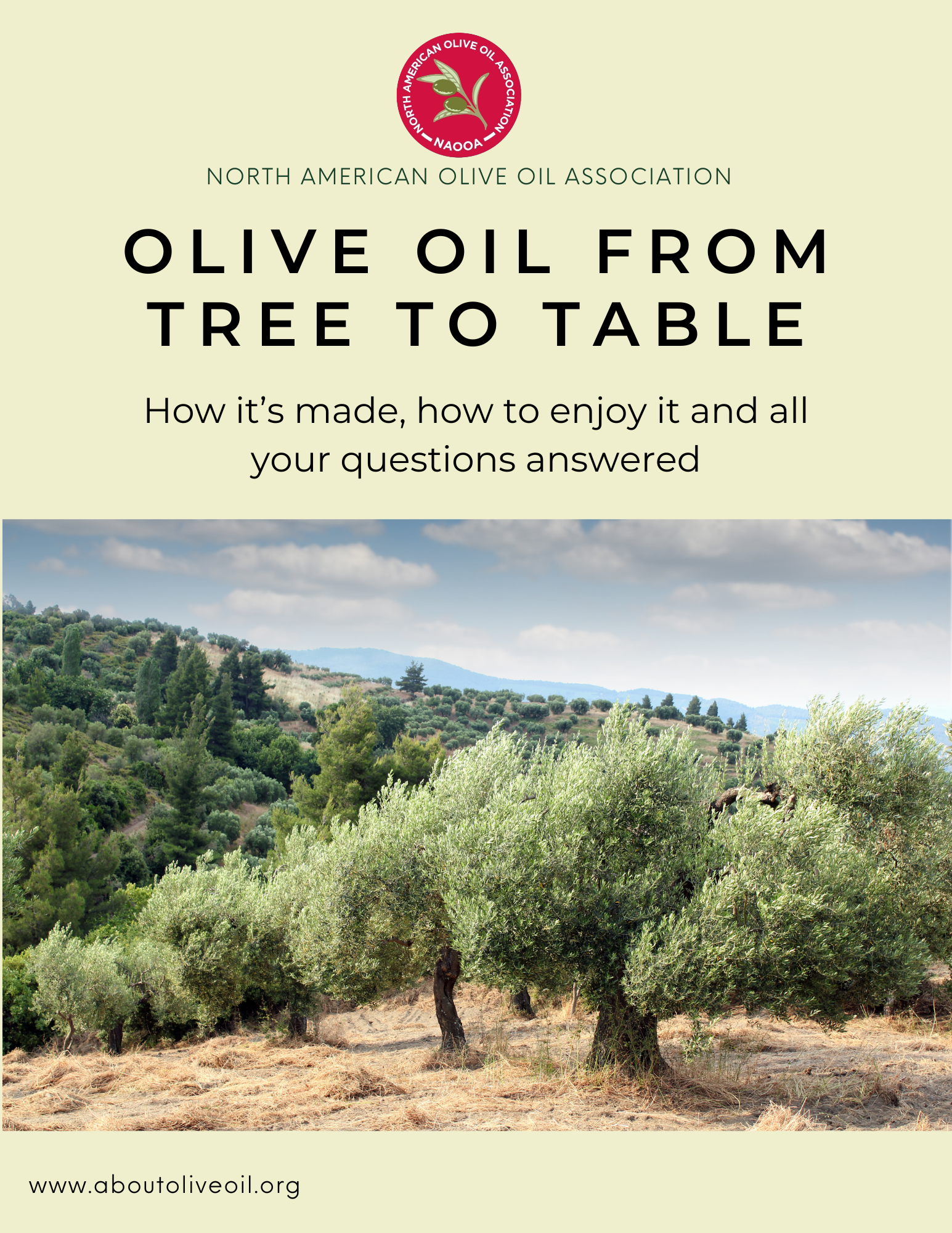By Dr. Simon Poole
A lot of people today understand that extra virgin olive oil (EVOO) is good for you. But underlying that simple statement is a world of confusion driven by misinformed reports about whether you should cook with it. In my work as a family physician and public health and nutrition advocate, here’s what I tell people about a subject that has become far trickier than it needs to be.
First, cooking with EVOO is healthy and safe. There is no scientific evidence to the contrary. Olive oil has been the universal cooking oil for the Mediterranean Diet for thousands of years. Given that extra virgin olive oil (EVOO) is the only cooking medium recognized in the traditional Mediterranean Diet, the diet’s health benefits would be inconceivable without its use in cooking and food preparation. EVOO is not only safe for everything from baking and roasting to frying, it is the desirable cooking oil when compared with other choices. This was underscored by a recent study published in the journal ACTA Scientific Nutritional Health, which compared several common types of cooking oil and found that “EVOO has demonstrated to be the most stable oil when heated.”
Smoke point is not an issue. You may have read that smoke point – the temperature at which an oil begins to smoke – is the reason to avoid cooking with EVOO, but this is misleading. First, when you’re cooking food in olive oil, as opposed to heating olive oil by itself on the stove, your food will rarely, if ever, reach the smoke point. Beyond that, researchers have found that smoke point does not have a direct correlation to an oil’s performance when heated. In the study referenced above, oils with low smoke points or moderate smoke points (such as extra virgin olive oil) outperformed oils with higher smoke points (like avocado, sunflower and canola oils) when heated at high temperatures. Other factors also play a crucial role in the stability and safety of a cooking oil, including the extent to which an oil has already been refined at high temperatures, and the presence of monounsaturated fats and antioxidants.
EVOO produces the lowest level of by-products when heated. Another issue people often raise with cooking oils is the level of potentially harmful by-products, like polar compounds and trans fats, that are created when the oil is heated. While this may be a concern for the flavorless refined oils most people cook with – oils that are not stable at high temperatures, as the above referenced study showed – EVOO is actually quite stable and resists breaking down when heated. This stability comes from a variety of factors, including being naturally rich in monounsaturated fat and antioxidants as a virgin cooking oil (i.e., virgin oil is not refined).
Cooking with EVOO does not diminish its benefits and can even enhance the health qualities of other ingredients in food. It’s simply not true that EVOO loses its health benefits when cooked. In fact, it can boost the healthfulness of the food that’s cooking in it. For example, a study published in the journal Food Chemistry found that vegetables cooked in EVOO contained more nutrients than their counterparts that were boiled in water. Not only are nutrients lost in cooking water, but the beneficial polyphenols in olive oil are actually absorbed into the vegetables when cooked in EVOO. So, beyond EVOO being safe to cook with, it also offers additional health benefits when compared to other forms of food preparation. In another added benefit, since EVOO enhances the flavor of foods, you may find that you need less salt. Cooking with EVOO is a win-win situation.
EVOO for everyday use is not expensive. Finally, you may have heard that EVOO is too expensive to cook with. While you can certainly find a good quality EVOO for much less, let's consider a high-end bottle that costs $20 per liter. A recipe for four people that calls for a quarter of a cup of EVOO works out to about $0.30 per serving. Given that many consumers don’t hesitate to pay $2 or more for a bottle of water or a cup of coffee, these are pennies well spent on yourself and those you love. You can also make eating well more economical by choosing a less expensive, good quality EVOO in a large container (sealed well and safely stored in a cool, dark place) for everyday use in the kitchen, while also having a more premium one on hand as a “finishing oil” for flavoring and dressing.
In short, you not only can safely cook with EVOO; you should be cooking with it for your health … and because it is affordable and delicious. If you’re looking for new ways to introduce EVOO into your diet, get inspired with these dishes from the North American Olive Oil Association, or I offer several recipes on my website and in my book, The Olive Oil Diet.
About the Author

Dr. Simon Poole is a UK based medical doctor, author, broadcaster, commentator and an internationally renowned authority on the science, application and communication of the Mediterranean Diet. He is author of The Olive Oil Diet with Judy Ridgway which takes an authoritative look at the science behind the headlines about olive oil. With over 100 delicious recipes, the book covers how olive oil can significantly improve your health, well-being and vitality especially with regards to heart disease, stroke and diseases such as cancer, diabetes and dementia and maintaining a healthy weight.





